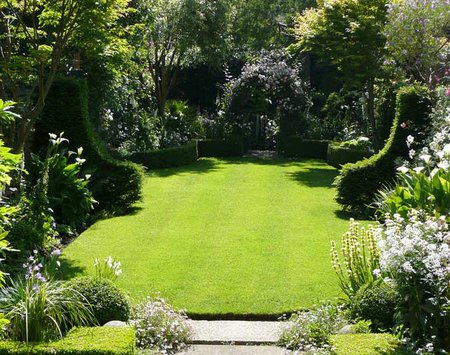Feeding The Lawn – During late spring and summer, the rapid growth of grass means that frequent mowing is essential. The dangers of allowing the grass to grow too tall have already been pointed out, so the turf must be kept at the recommended height no matter how actively it is growing. On this basis it might seem that feeding the lawn is a foolish thing to do. Isn’t it hard enough to keep the grass down without forcing it to grow more quickly? Is it really worth the extra cost of fertilizer and the need for extra cutting just to make the grass look greener? The simple answer is that the plant foods contained in a compound lawn fertilizer do much more than make the grass look greener.

Their main task is to produce closely-knit turf in which neither weeds nor moss can obtain a ready foothold. The grass is indeed made more attractive because of its deeper green color, but equally important is the build up of resistance to drought and disease. Mowing is a serious drain on the soil’s reserve of major plant foods. Nitrogen becomes exhausted quite quickly – phosphates and potash more slowly. Unless the reserves are replaced the grass turns pale and the turf becomes thin and sparse. Fertilizer is needed – not too little but not too much. Good lawn management calls for a regular lawn feeding programme.

Fertilizers and the weather
Before feeding check the weather forecast. If possible, pick a time when showery weather is likely. Avoid feeding during prolonged dry weather. If treatment must be done at such times, water thoroughly shortly BEFORE application and then treat as soon as the foliage is dry.
The grass should be dry and the soil moist at the time of treatment. Never feed the lawn when it is raining. If rain does not fall for 2 days after application, water the treated lawn thoroughly to carry the fertilizer down into the soil.

























